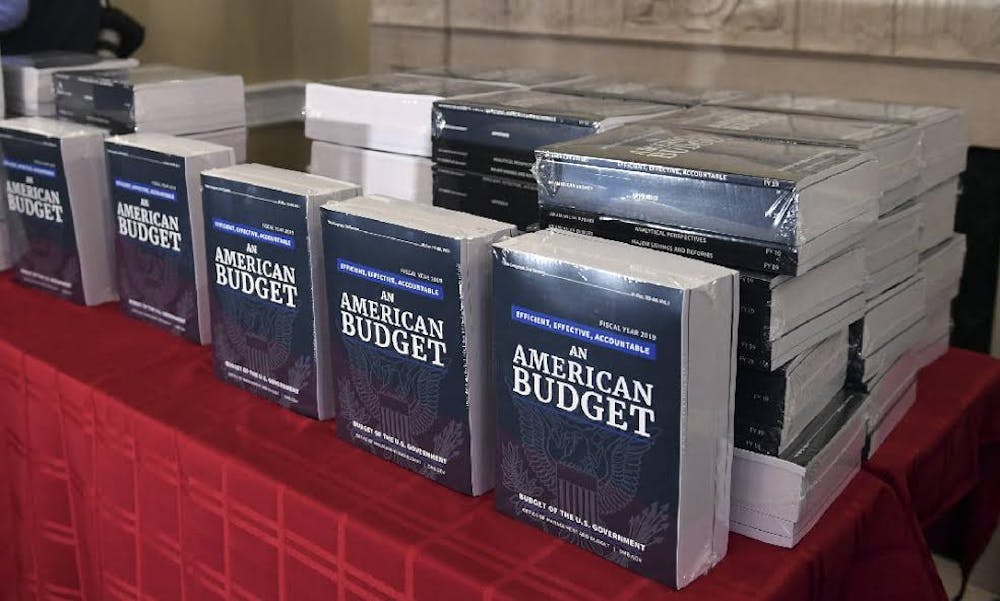By James Wright
Correspondent
The Trump administration unveiled its planned budget for the 2019 fiscal year on Feb. 12, just three weeks after a brief government shutdown. The proposed budget plan amounts to $4.4 trillion in spending and $1.5 trillion in tax cuts, increasing deficits in an attempt to advance economic growth, according to The Wall Street Journal.

Despite President Donald Trump’s campaign rhetoric, which focused on a conservative approach to the deficit, the budget proposal put forth by the administration would add at least $7 trillion to the national debt over the next decade, according to The Washington Post.
The proposal, titled “Efficient, Effective, Accountable: An American Budget,” most notably plans to increase military spending and set aside large amounts of money for border security with the hopes of funding a Mexican border wall, according to NPR.
The bill also includes cuts to social programs including Medicare, Medicaid and food stamps, according to The Washington Post.
The cuts would amount to $3 trillion over the next 10 years, but fail to balance the budget due to lost tax revenue and increased spending on other programs, according to The Wall Street Journal.
Despite optimistic outlooks by the White House, the budget still fails to make up for the revenue lost by the $1.5 trillion tax cut that President Trump approved in December 2017. Tax receipts will be $314 billion lower in 2018 than in 2017, and $400 billion lower in fiscal 2019, according to The Washington Post.
The presidential budget assumes that the economy will grow about three percent annually over the next decade, in part due to the tax cuts, which contrasts with the projections of most economists. Federal Reserve officials, for example, claim that the economy will only grow about two percent over the same time frame, according to The Wall Street Journal.
“Budgets are aspirational documents and seldom have a real impact on spending,” said Rep. Mark Meadows of North Carolina in The Washington Post.
Meadows is also chairman of the conservative House Freedom Caucus. He admired the budget’s support of the military, as well as the $17 billion allocated to fight opioid abuse.
“Certainly I applaud the president’s willingness to address our military, veterans and many suffering from the opioid abuse epidemic,” Meadows said.
Democrats are not pleased with the Trump administration’s plan.
“These cuts to critical federal investments are so extreme they can only reflect a disdain for working families and a total lack of vision for stronger society,” said Rep. John Yarmuth of Kentucky, the top Democrat on the House Budget Committee, according to The Washington Post.
This debate between congressional Democrats and Republicans adds to the high partisan tensions, as midterm elections in November will determine which party has control of Congress.







